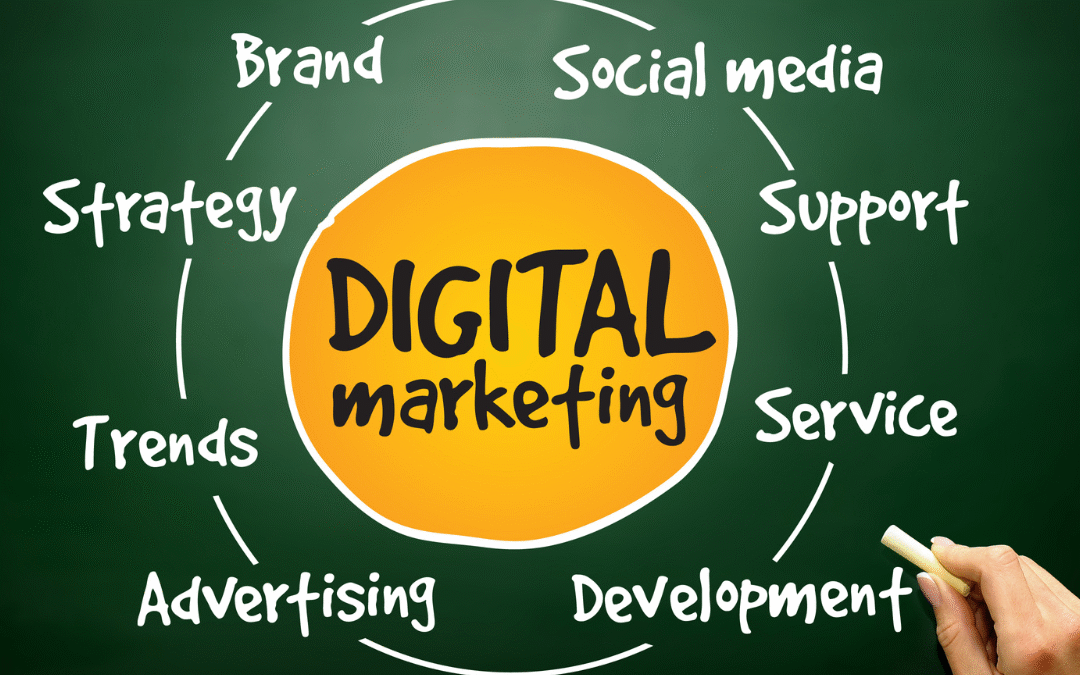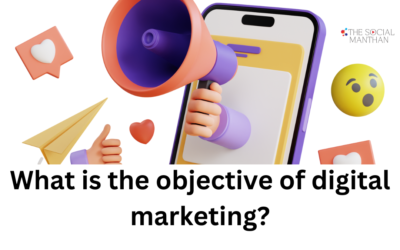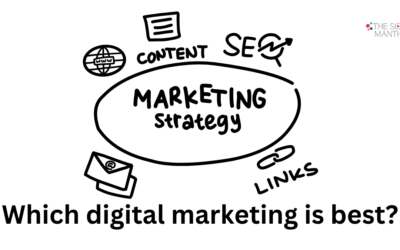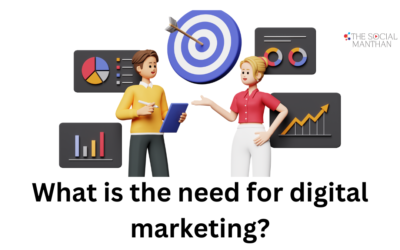ROI is a crucial metric that can make or break your digital marketing efforts, and understanding it is crucial for your business’s growth. To ensure you’re investing wisely, it’s vital to ask your agency the right questions about how they measure and report ROI. This blog post will guide you through key inquiries that can help you decipher the effectiveness of your digital marketing campaigns and empower you to make informed decisions for your brand.
Key Takeaways:
- Digital Marketing Metrics: Identify and understand the key metrics that reflect your campaign’s performance, such as customer acquisition cost, conversion rates, and audience engagement.
- Setting Clear Objectives: Work with your agency to establish clear, measurable objectives that align with your business goals to accurately gauge ROI.
- Regular Reporting: Ensure that your agency provides regular and transparent reports that break down ROI calculations, allowing for ongoing assessment and adjustments in strategy.
Understanding ROI in Digital Marketing
While many businesses recognize the importance of digital marketing, few understand how to effectively measure the return on investment (ROI) generated by their efforts. Successfully gauging ROI is crucial, as it helps you assess the effectiveness of your digital marketing strategies and informs your future budget allocation. To truly grasp ROI, it’s important to consider what you want to achieve through digital marketing, whether it’s increasing brand awareness, generating leads, or generating more sales.
How to Define ROI in Digital Marketing
Marketing ROI in digital terms typically refers to a ratio that compares the revenue generated from your digital marketing efforts to the costs associated with those initiatives. By tracking metrics such as conversion rates, customer acquisition costs, and overall sales performance, you can start quantifying your returns. This precise evaluation helps you understand where to invest more resources and where to pull back.
It’s also important to establish clear objectives to define your ROI accurately. Setting measurable goals aligns with your business’s overarching strategies while providing a benchmark for success. Incorporating both qualitative and quantitative data will lead to a more holistic view of your return. Note, not every outcome can be translated into monetary value, but acknowledging brand loyalty or customer engagement levels plays an important role in your evaluations.
Factors Affecting Digital Marketing ROI
An array of factors can influence your digital marketing ROI, and understanding these can help you better tailor your strategies. Some key elements include your target audience’s behavior, the platforms utilized for marketing, content quality, market competition, and external economic factors. Each of these can impact not just the reach of your marketing efforts but also how effectively you convert leads into loyal customers.
- Your target audience: Understanding the demographics, preferences, and behaviors of your audience is crucial.
- The platforms used: Different social media and online platforms bring varying levels of engagement and conversion potential.
- Content quality: Compelling, relevant content resonates better with prospects and encourages action.
- Market competition: The strategies employed by your competitors can influence your marketing effectiveness.
- External economic factors: Economic downturns or booms can significantly change consumer spending behaviors.
After considering these factors, you can make strategic decisions that help maximize your ROI. Recognizing their interplay will allow you to pivot your approach as needed and optimize your campaigns for better outcomes.
Digital marketing ROI isn’t static; it evolves with trends and technology changes. Your return isn’t solely about sales figures; it also encompasses engagement metrics, customer retention rates, and brand loyalty. Pulling insights from these aspects can lead to more informed marketing strategies going forward.
- Engagement rates: Are users interacting with your content as expected?
- Conversion rates: What percentage of leads are turning into paying customers?
- Customer lifetime value (CLV): How much revenue do you anticipate from a customer during their lifetime?
- Cost per acquisition (CPA): What are the expenses incurred to acquire a new customer through your digital channels?
- Brand awareness: How well is your brand recognized within your target market?
After analyzing these metrics, you can formulate a clearer picture of your digital marketing ROI and effectively adjust your strategies for optimal performance.
Common Metrics to Measure ROI
On your journey to understanding digital marketing ROI, it’s crucial to familiarize yourself with common metrics that provide insights into campaign performance. Metrics such as click-through rates (CTR), conversion rates, customer acquisition costs (CAC), and return on ad spend (ROAS) are integral to comprehensively measuring success. Tracking these statistics helps you pinpoint which tactics yield the best results, thus informing strategic adjustments.
Incorporating a range of metrics in your assessments will create a well-rounded view of your marketing performance. It allows you to see not just where your money is going, but also how effective your strategies are in achieving the desired results. Considering both short-term and long-term metrics can give you a more accurate representation of ROI and ensure sustained growth.
It’s vital to continually evaluate these metrics, as they will help inform how your campaigns align with your overall business goals. Staying updated on these key performance indicators can drive you to make data-backed decisions that will further enhance your marketing strategies and efforts.
Key Considerations When Choosing a Digital Marketing Agency
Even as you initiate on your journey of selecting a digital marketing agency, it’s crucial to keep several key considerations in mind that will influence both the effectiveness and efficiency of your marketing endeavors. Your choice of agency can significantly impact the success of your campaigns, and understanding what to look for can make a world of difference in achieving your goals.
Tips for Evaluating Agency Experience
Choosing the right digital marketing agency involves scrutinizing their experience in the industry. An effective way to evaluate agency experience is by looking at their portfolio, asking for case studies, and considering client testimonials. Ensure you inquire about the duration of their experience with specific marketing tactics that are crucial for your business.
- Review their past successes with similar companies or campaigns.
- Look for agencies that display a strong understanding of your industry.
- Ask about the team members’ credentials and experience levels.
Recognizing the depth of an agency’s experience can provide reassurance that they are equipped to navigate the evolving digital landscape and drive results for your business.
How to Assess Agency Specializations
Assessing the specializations of a digital marketing agency is vital to ensure they align with your specific needs and objectives. You’ll want to determine whether the agency focuses on particular areas such as SEO, content marketing, social media, or PPC. This can significantly affect the strategies they use and the results you can expect.
Marketing agencies sometimes offer a broad spectrum of services, but not every agency excels across all areas. Look for agencies with documented success in the specialization that matters most to your business. Focusing on their strengths allows you to leverage expertise that translates into effective marketing strategies.
Factors to Consider in Agency Pricing Models
Little knowledge about pricing models can lead to unexpected costs, so it’s vital to dive deeper into how different agencies charge for their services. Agencies typically use one of several pricing structures, such as hourly rates, project-based fees, or retainers. Understanding these models will help you budget effectively and gauge which option provides the best value for your investment.
- Compare the average costs of various agencies to establish a baseline.
- Inquire about any additional fees or hidden costs that might arise.
- Discuss performance-based pricing options, if applicable.
After you have carefully compared agency pricing models, you will be in a stronger position to choose an agency that balances cost and value, ensuring you get the best return on your investment.
Specializations will usually define the costs associated with the services of a digital marketing agency. Generally, niche agencies may carry a premium due to their specialized knowledge, while full-service agencies might offer more competitive rates but could dilute their effectiveness across various services. Thus, understanding the relationship between specialization and pricing is critical to making a well-informed decision.
- Identify any premium services that could enhance your campaigns.
- Evaluate whether a broader service offering aligns with your objectives.
- Consider long-term pricing implications based on your growth and scaling needs.
After understanding these factors, you can better assess which agency not only fits within your budget but also aligns with your vision, paving the way for a successful partnership.
Setting Clear Objectives with Your Agency
Keep in mind that defining clear objectives is crucial for measuring the success of your digital marketing efforts. Work collaboratively with your agency to ensure that these objectives are specific, measurable, achievable, relevant, and time-bound (SMART). This collaborative process not only aligns your marketing strategy with your business goals but also creates a shared commitment to achieving those goals.
How to Align Marketing Goals with Business Objectives
Objectives should serve as the foundation for your marketing campaign. Begin by identifying your overarching business goals, whether they are to increase brand awareness, generate leads, or drive sales. Once you have a clear understanding of your long-term vision, translate these goals into targeted marketing objectives that will guide your campaigns. This process will ensure that every piece of marketing activity you undertake brings you closer to achieving your business objectives.
Tips for Establishing KPIs and Benchmarks
If you’re looking to gauge the success of your digital marketing strategy, establishing Key Performance Indicators (KPIs) and benchmarks is vital. KPIs provide measurable values that indicate how effectively your agency is meeting your business objectives. A thoughtful approach to developing these metrics will help both you and your agency stay aligned throughout your campaigns. Consider the following:
- Identify your core objectives.
- Determine which metrics correlate with these objectives.
- Set clear benchmarks based on industry standards or your historical performance.
- Review and adjust your KPIs as necessary to reflect the evolving marketing landscape.
Thou must remember that the establishment of KPIs and benchmarks is not a one-time exercise; it requires ongoing evaluation. When you clearly define the metrics that matter most to your success, you will empower your agency to make data-informed decisions that drive performance. Additionally, regular check-ins can help ensure that everyone remains on the same page and can pivot when necessary.
Factors Influencing Goal Achievement
Any marketer knows that various factors can impact the achievement of your marketing goals. From market trends and competitor actions to changes in consumer behavior, it’s vital for you and your agency to stay attuned to external conditions that may hinder or facilitate your progress. By recognizing these variables, you’ll be better equipped to adapt your strategy in real-time and maintain alignment with your objectives. Consider evaluating factors such as:
- Market conditions and economic factors.
- Changes in consumer preferences.
- The competitive landscape.
- Performance of previous campaigns.
Recognizing these external factors and their influence on your objectives is key to maintaining an adaptive approach. Not all variables can be controlled or predicted, but by having contingency plans in place, you will enhance your agency’s ability to respond effectively to unexpected changes.
Establishing a Responsive Strategy
Establishing effective marketing goals requires an understanding and acceptance of the dynamic nature of the digital landscape. As you set your objectives, ensure you allow flexibility for your agency to respond to insights and data in real time. This adaptability will not only help you stay relevant but will also support consistent achievement of your marketing goals in an ever-evolving market. Recognizing this will enable you to craft a strategy that evolves with both your business and your audience’s needs.
- Emphasize adaptability in your marketing strategy.
- Encourage ongoing communication with your agency.
- Utilize data-driven insights for decision-making.
- Reevaluate and adjust goals and strategies regularly.
Recognizing this responsiveness will enhance your agency’s effectiveness in delivering results that align with your goals. With these strategies in place, you and your agency will be well-prepared to achieve not only your marketing objectives but also your overall business ambitions.
Communicating Expectations and Reports
Not having clear communication with your digital marketing agency can lead to misunderstandings related to performance expectations and deliverables. It’s vital to establish a strong communication framework to ensure that both you and your agency are on the same page. This not only enhances your working relationship but also ensures that you’re able to track your return on investment (ROI) effectively. Regular updates and open lines of communication can mitigate frustration and drive better results.
How to Set Up Regular Communication with Your Agency
Communication serves as the bedrock of a successful partnership with your digital marketing agency. Start by agreeing on the preferred modes of communication, whether that’s email, video calls, or in-person meetings. Decide on a regular schedule for updates—these could be weekly, bi-weekly, or monthly. It’s also useful to establish a point of contact on both sides for quick queries or issues that may arise in between scheduled meetings.
Additionally, consider creating a shared calendar that captures these meetings and important deadlines. This can also include milestones for campaign elements that allow both you and your agency to celebrate progress while ensuring that all necessary reporting tasks are aligned. This transparent communication approach will set the tone for the entire campaign, allowing for real-time adjustments and improved collaboration.
Tips for Understanding Reporting Formats and Data
For many business owners, reports from digital marketing agencies can feel overwhelming due to the complex data and jargon involved. It’s important to clarify how the data is presented and what each metric means. Make sure you review the reporting formats provided by your agency to ensure they align with your business goals. Set aside time to go over these reports together, asking your agency to explain the significance of each metric, as well as how it directly ties back to your ROI.
- Ask your agency to provide clarity on key performance indicators (KPIs).
- Request examples of how the data is collected and analyzed.
- Inquire about the frequency of reporting and ensure it fits your needs.
This way, you’ll be better equipped to interpret the information and make informed decisions based on performance data.
With a clear understanding of the reporting formats, you can also discuss custom reports that focus on the metrics critical to your business objectives. This conversation will help filter through the noise and provide you with actionable insights. Consider what specific data you would like to see in regular reports to better assess the ROI of your digital marketing efforts.
- Determine the metrics most relevant to your business success.
- Specify how you would like the data visualized for easier comprehension.
- Request periodic check-ins to adapt reporting as your objectives evolve.
This tailored approach to reporting can make a significant difference in how you perceive progress and ROI.
Factors to Consider in Reporting Frequency and Detail
Expectations regarding the frequency and detail of reporting should be mutually agreed upon between you and your agency. Consider the size of your campaigns and your own capacity for analysis as you discuss how often updates should be provided. Understand that more frequently detailed reports may offer increased visibility but could also lead to information overload. Finding a balance that suits both parties will enhance your relationship while driving more efficient results.
- Think about the pace at which your business changes and how that affects reporting needs.
- Assess the complexity of your campaigns to determine the level of detail required.
- Discuss potential adjustments that could be made during reporting review meetings.
This ongoing conversation about reports will keep your agency accountable while ensuring you’re not buried in data.
Tips for ensuring you have meaningful conversations around reporting include being specific about your objectives, prioritizing which metrics are imperative, and remaining open to feedback from your agency. This mutual understanding will contribute to a more fruitful partnership and ultimately lead to a better assessment of your marketing ROI.
- Outline your specific business goals during your initial discussions.
- Revisit these objectives regularly to see if updates to reporting strategies are needed.
- Encourage an open dialogue where feedback can be freely shared.
This strong foundation of communication and understanding will yield better insights into the effectiveness of your digital marketing efforts.
Understanding Different Digital Marketing Channels
Despite the overwhelming number of digital marketing channels available today, understanding how each channel contributes to your overall marketing strategy is crucial. From search engine optimization (SEO) to social media marketing and email campaigns, each channel has unique strengths and weaknesses that can either enhance or hinder your return on investment (ROI). By working closely with your agency, you can identify which channels resonate most with your audience and align with your business goals, leading to more effective campaigns and optimized spend.
How to Evaluate the Impact of SEO on ROI
Even though measuring SEO’s impact is often regarded as challenging, various metrics can provide insight into your ROI. You’ll want to focus on organic traffic growth, keyword rankings, and conversion rates. Tracking how these elements evolve over time can help you determine the effectiveness of your SEO strategies. Your agency should assist you in setting up the necessary analytics tools to monitor these metrics, ensuring you’re aligned with your ROI expectations.
Moreover, you can assess your SEO performance by evaluating the cost per acquisition (CPA) for leads generated organically compared to other channels. If your organic leads are cheaper and drive higher quality traffic, then your SEO efforts are likely making a positive impact on your bottom line. Discuss these findings with your agency and continually refine your strategies to maximize results.
Tips for Measuring Social Media Effectiveness
Social media is a vital digital marketing channel that allows you to engage directly with your audience. To measure its effectiveness, you should focus on various performance metrics, including engagement rates, reach, and conversion rates from social media referrals. Identifying which posts drive the most interaction can guide your content strategy moving forward. Here are some tips to effectively evaluate your social media performance:
- Track engagement metrics such as likes, shares, and comments.
- Analyze click-through rates from social media posts to your website.
- Use unique URLs to track conversions from different platforms.
This will enable you to assess social media’s direct influence on your ROI.
Another aspect of measuring social media effectiveness is understanding the audience demographics and their behaviors on different platforms. Different channels attract different audiences, so identifying where your target market spends their time will be vital in optimizing your social media strategy. Here are some additional considerations to keep in mind:
- Consider using social analytics tools for deeper insights.
- Analyze audience feedback to refine your messaging.
- Stay updated on evolving social media trends.
This will help you create content that is both relevant and impactful, further enhancing your social media ROI.
Factors Affecting Email Marketing Returns
Impact on email marketing returns can be influenced by various factors such as email content, frequency of sends, and the segmentation of your audience. You must ensure that your emails are tailored to audience preferences and behaviors to improve engagement and conversion rates. Discuss these aspects with your agency to help optimize your campaigns and better your chances for high ROI. Here are some crucial elements to consider:
- Test and optimize subject lines for higher open rates.
- Segment your email list to send targeted messages.
- Monitor the timing and frequency of sends for optimal engagement.
Perceiving how these factors contribute to your email marketing effectiveness can guide your future strategies.
Returns on your email marketing efforts also hinge on your overall approach to list management and content relevance. The quality of your mailing list can dramatically influence your open and click-through rates. Therefore, maintaining a clean list and providing valuable content is necessary for long-term success. Here are additional points to consider:
- Regularly clean your mailing list to remove inactive subscribers.
- Personalize your emails to create a more engaging experience.
- Analyze past campaigns to identify what resonates with your audience.
Perceiving how your strategies evolve can help you enhance your overall email marketing performance.
Adjusting Strategies Based on Performance
Your ability to adapt your digital marketing strategies based on performance metrics is crucial for optimizing your return on investment (ROI). Successful digital marketing is an ongoing process, and it requires continuous evaluation of campaign performance to ensure your strategies align with your business goals. You should regularly analyze metrics such as conversion rates, customer acquisition costs, and engagement levels to determine which aspects of your strategies are working and which ones need revisions.
How to Analyze ROI Data for Strategic Adjustments
One effective way to analyze ROI data is to set clear benchmarks and performance indicators prior to launching your campaign. By tracking these metrics throughout the campaign, you can identify trends and anomalies that signal when adjustments are necessary. Utilize analytics tools that can provide insights into user behavior and campaign effectiveness, allowing you to separate successful strategies from those that are underperforming.
Additionally, consider segmenting your data by demographics, channels, and timeframes, as this can provide a more nuanced view of your campaign’s performance. For example, if you notice a higher ROI from a specific demographic, you may want to redirect more resources toward targeting that audience. The insights gained from this analysis are invaluable in refining your approach to maximize your marketing efforts.
Tips for A/B Testing and Iterative Improvements
Strategies like A/B testing can serve as powerful tools in your digital marketing arsenal. Engaging in A/B testing allows you to compare two versions of a campaign element to see which one performs better, helping you make data-driven decisions about adjustments. Whether it’s subject lines for email marketing or variations of landing pages, testing helps you fine-tune your strategies effectively.
- Start with a clear hypothesis about what you believe will work better.
- Test one variable at a time to ensure clarity in results.
- Set a sufficient duration for each test to gather meaningful data.
- Analyze results statistically to make informed decisions going forward.
- Iterate based on findings to continually enhance performance.
The importance of A/B testing cannot be overstated, as improved outcomes can stem from even the smallest adjustments. Regularly reviewing test outcomes empowers you to learn from what worked and what didn’t, ensuring a continuous cycle of enhancement.
- Utilize insights from A/B testing to inform future campaigns.
- Encourage creative input from your team during the testing phases.
- Document the outcomes for reference in subsequent projects.
- Engage your audience by asking for feedback on variations.
- Always have a hypothesis to guide your testing efforts.
Factors Leading to Successful Strategy Revisions
Improvements in your digital marketing efforts often hinge on understanding the underlying factors that contribute to successful strategy revisions. Your commitment to ongoing learning and willingness to pivot in response to performance data can set you apart from competitors. Consider examining your audience’s evolving preferences and industry trends when making adjustments to your strategies.
- Establish a culture of experimentation within your marketing team.
- Communicate transparently about findings and insights.
- Regularly review and update your marketing plans based on analytical results.
- Ensure all team members understand the importance of adaptability.
- Seek feedback from customers to gauge their evolving needs.
Any adjustment made should reflect not only the data but also a comprehensive understanding of your target market’s needs and desires. By fostering an adaptable mindset and embracing a data-driven approach, you can ensure that your marketing strategies remain relevant and effective over time.
- Focus on continuous improvement through feedback loops.
- Encourage brainstorming sessions to explore creative strategies.
- Remain open to new technologies and methodologies.
- Align revisions with overall business objectives and goals.
- Draw insights from competitor strategies and case studies.
Data-Driven Decisions for Enhanced Performance
Data plays a critical role in informing any revisions made to your digital marketing strategies. Your analytical activities should extend beyond just evaluating metrics—consider drawing connections between different data sets to uncover deeper insights. Look out for patterns and correlations that could guide your decision-making process.
By leveraging analytical insights and customer feedback, you can make strategic adjustments that resonate with your target audience. Utilizing the right tools will ensure you have a clear understanding of your ROI, leading to more effective and responsive marketing strategies.
Final Words
Presently, understanding the ROI of digital marketing is crucial for making informed decisions about your marketing strategies. As you engage with your agency, it is imperative to ask the right questions to ensure transparency and alignment with your business goals. Inquire about their methodologies for tracking and measuring results, the tools they use for data analysis, and how they attribute success to specific campaigns. By doing so, you can gain valuable insights into what works for your brand and how funds are being allocated, allowing you to optimize your marketing efforts effectively.
Moreover, establish clear KPIs that resonate with your overall business objectives. Discuss how your agency plans to report on these metrics and the frequency of updates you can expect. Do not forget, an effective partnership hinges on open communication, so don’t hesitate to seek clarification on anything that seems ambiguous. Ultimately, by understanding the ROI of your digital marketing endeavors, you empower yourself to make better choices that drive growth and success for your business.
FAQ
Q: What metrics should I focus on when assessing the ROI of digital marketing campaigns?
A: When evaluating the ROI of your digital marketing efforts, key metrics to consider include Customer Acquisition Cost (CAC), Conversion Rate, Return on Ad Spend (ROAS), Customer Lifetime Value (CLV), and Website Traffic. Each of these metrics provides insight into how effectively your campaigns are generating leads, engaging customers, and ultimately driving revenue. By tracking these metrics over time, you can determine which strategies yield the highest return and make informed adjustments to your campaigns accordingly.
Q: How often should I review the ROI of my digital marketing efforts with my agency?
A: It is recommended to review the ROI of your digital marketing efforts at least quarterly with your agency. This timeframe allows you to analyze trends, adjust strategies based on data, and ensure alignment with business goals. However, depending on your campaign type and objectives, more frequent check-ins—such as monthly reviews—may be beneficial for optimizing performance and making timely adjustments as needed. Establishing a regular review schedule can help maintain clear communication and accountability between you and your agency.
Q: What questions should I ask my agency to better understand the ROI of our digital marketing strategy?
A: When discussing ROI with your agency, consider asking the following questions: 1) What specific KPIs will you use to measure the success of our campaigns? 2) Can you provide case studies or examples of past successes and ROI from similar clients? 3) How will you adjust strategies based on performance data? These questions will provide you with a clearer picture of how ROI is calculated, the expected outcomes, and how proactive your agency is in optimizing your digital marketing efforts for maximum return.







